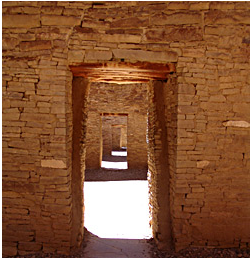Publication Date
7-1-2011
Abstract
This dissertation analyzes the emergent Native American cuisine of the American Southwest. It consists of an ethnography of both Native American cooks, who are largely self-taught and practice in noncommercial settings, as well as Native American chefs, some self taught and some professionally trained and working in commercial settings. The ethnographic work includes both extensive and intensive field interviews with chefs and cooks, and close attention to their work in home and professional kitchens. Particular attention is paid to histories of food knowledge, as well as to food preparation concepts, techniques, performance, and aesthetics. The foods employed by these cooks and chefs are further analyzed in relation to their geographic, ecological, and socio-cultural histories in the Greater Southwest. This includes food and crops that date back thousands of years as well as those introduced within the past five hundred years after initial contact. Additionally it includes foods issued by the U.S. government and food introduced or assimilated in the process of cultural contact over the past one hundred and fifty years. The discourses and practices associated with these foods are intricately linked to the construction of Native identity. Even when the Spanish or others introduced the sources or techniques, food is intimately associated with local knowledge and cultural expression for Native cooks and chefs. Two theoretical approaches are highlighted in the ethnographic analysis: the study of performance and of the senses. Food is an expressive symbol of the self-identity of cooks and chefs, and performance is central to its expressive practice. Food is also a medium of cultural knowing and a mechanism for embodying cultural memory, with deeply sensuous connections to place. This research advances the anthropological understanding of Native American cuisine, its history, discourse, and practices. In addition to its value as the first history and ethnography of the emergence of the Native American cuisine movement, it is also a foundational document for assessing how food practices affect contemporary Native communities, with implications for future studies of Native American nutrition, health, and wellness.
Keywords
Native American, Native American cuisine, Southwest, Chefs, Native American Chefs, Cooks, Native American Cooks, Cuisine, Native American agriculture, wild food harvesting, health and wellness, Native American Foodways, Foodscapes, Type 2 Diabetes, contemporary southwest kitchens, Southwest kitchens, Senses, Pan Indian foods, New Native American Cuisine, Traditional Foodways, Food and Culture, Ethnic Identity, Innovative Cuisine, Chefs--Social life and customs
Document Type
Dissertation
Language
English
Degree Name
Anthropology
Level of Degree
Doctoral
Department Name
Anthropology
First Committee Member (Chair)
Karl H. Schwerin
Second Committee Member
Steven Feld
Third Committee Member
Mari Lyn C. Salvador
Fourth Committee Member
Suzanne R. Oakdale
Fifth Committee Member
Gary Paul Nabhan
Recommended Citation
Frank, Lois Ellen. "The Discourse and Practice of Native American Cuisine: Native American Chefs and Native American Cooks in Contemporary Southwest Kitchens." (2011). https://digitalrepository.unm.edu/anth_etds/24

